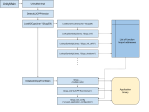Archive
Simple2D 1.13 now available
A new major release of Simple2D is now available (the download link can be found at the bottom of the page).
Version 1.13 is a small update with the following main changes:
- Visual Studio 2013 compatibility and pre-compiled binaries
- Significant usability updates to the Animation class
- A small number of new math & time functions
- Some bug fixes
Simple2D 1.12 now available
A new major release of Simple2D is now available (the download link can be found at the bottom of the page).
Version 1.12 has a key focus on:
- An improved, cleaner initialization interface
- Basic Direct3D support including the ability to draw with both Direct2D and Direct3D onto the same render target
- Full editing support for text boxes (navigation, editing, selection, Windows clipboard and infinite undo)
- Some improvements to XInput gamepad support
- Numerous bug fixes
Simple2D 1.11 now available
A new major release of Simple2D is now available (the download link can be found at the bottom of the page).
Version 1.11 introduces 49 improvements and bug fixes with an emphasis on user interface coding. Improvements have been made to scene objects, user interface objects and object groups, experimental support for skinning has been added, as well as support for XInput-compatible gamepads. Read more…
Simple2D 1.10 now available
A new major release of Simple2D is now available (the download link can be found at the bottom of the page).
Version 1.10 introduces improved scene management, improved scene objects and user interface objects, object groups, customizable window resize and full-screen behaviour, more logical event dispatch, new time-based animation functions and a number of bug fixes. Read more…
Simple2D 1.07 now available
The latest version of my Direct2D-based graphics library Simple2D is now available.
This is mostly a bug fix release with a couple of minor enhancements.
Simple2D 1.06 now available
The latest version of my Direct2D-based graphics library Simple2D is now available.
The main changes are targeting of Direct2D 1.1 and Direct3D 11.1 (and support of new features provided by these), improvements to geometry and window handling, migration of the library source code to Visual Studio 2012, new demos and a new installer. Run-time support for Windows Vista and compile-time support for Visual Studio 2010 is dropped (although it still compiles with warnings). Read more…
2D Platform Games Part 9: Storing Levels in Files / Level Editors
IMPORTANT! From Part 8 onwards, you no longer require the Visual C++ 2010 Redistributable Package installed in order to be able to try the pre-compiled EXEs provided with the examples.
IMPORTANT! From Part 6 onwards, compatibility with Windows Vista in the pre-compiled EXEs has been dropped. To run the pre-compiled EXEs, you must have Windows 7 Service Pack 1 with Platform Update for Windows 7 installed, or Windows 8.
This article builds upon the demo project created in 2D Platform Games Part 8: Pass-through Platforms. Start with 2D Platform Games Part 1: Collision Detection for Dummies if you just stumbled upon this page at random!
Download source code and compiled EXE for the code in this article as well as the complete source code and compiled EXE for the level editor.
Until now we have just used a fairly arbitrary demo level that was hard-wired into our game code. This is neither very flexible nor very fast. It’s hard to create levels, and we also can’t offload that task to other members of our team. The solution, of course, is to make a level editor application which can save levels into files that the game can load.
Now, I can’t show you in one article how to learn Windows or other GUI programming and write a level editor, however we will look at several important topics around this:
- how to re-factor the way levels are stored in memory so they can be exported to a file
- how to export a level to a file
- how to import a level from a file
- how to add versioning to your level files
- the basics of what a feature-complete level editor should do
- sharing common code between the game and level editor applications
- some tips and code snippets on how to create useful level editing tools and how to make your Windows-based level editor work with Direct2D
2D Platform Games Part 8: Pass-through Platforms
IMPORTANT! From Part 8 onwards, you no longer require the Visual C++ 2010 Redistributable Package installed in order to be able to try the pre-compiled EXEs provided with the examples. Thanks to Dbug for reminding me that libraries can be statically linked 😛
IMPORTANT! From Part 6 onwards, compatibility with Windows Vista in the pre-compiled EXEs has been dropped. To run the pre-compiled EXEs, you must have Windows 7 Service Pack 1 with Platform Update for Windows 7 installed, or Windows 8.
This article builds upon the demo project created in 2D Platform Games Part 7: Player Character Animation. Start with 2D Platform Games Part 1: Collision Detection for Dummies if you just stumbled upon this page at random!
Download source code and compiled EXE for the code in this article.

Figure 1. Rainbow Islands uses only pass-through platforms for the entire game
Pass-through platforms are a type of platform commonly found in video games whereby the player can jump up through the platform from underneath, landing on its solid top surface. The platform behaves like a normal platform in all respects, except that when the player jumps up from underneath and hits it, he/she continues travelling upwards instead of encountering a solid obstacle. Games such as the all-time classic Rainbow Islands and more modern affairs such as the amusing time-waster Monsters (Probably) Stole my Princess! use pass-through platforms exclusively. Read more…






You must be logged in to post a comment.